I have the following two applications
- Angular 6/7 App
- .Net Core Web API
I am making GET request to API using Angular's HttpClient as shown below
this.subscription = this.httpClient.get('api/Controller/LongRunningProcess')
.subscribe((response) =>
{
// Handling response
});
API controller's LongRunningProcess method has the following code
[HttpGet]
[Route("LongRunningProcess")]
public async Task<IActionResult> LongRunningProcess(CancellationToken cancellationToken)
{
try
{
// Dummy long operation
await Task.Factory.StartNew(() =>
{
for (int i = 0; i < 10; i++)
{
// Option 1 (Not working)
if (cancellationToken.IsCancellationRequested)
break;
// Option 2 (Not working)
cancellationToken.ThrowIfCancellationRequested();
Thread.Sleep(6000);
}
}, cancellationToken);
}
catch (OperationCanceledException e)
{
Console.WriteLine($"{nameof(OperationCanceledException)} thrown with message: {e.Message}");
}
return Ok();
}
Now I want to cancel this long-running process so I am unsubscribing from client side as shown below
// On cancel button's click
this.subscription.unsubscribe();
Above code will cancel the request and I can see it is canceled in the Network tab of the browser as shown below
But it is not going to make IsCancellationRequested to true in the method LongRunningProcess of the API, so the operation will keep going.
[Note]: Both Option 1 and Option 2 in API method are not working even if I make a call using postman.
Question: Is there any way to cancel that LongRunningProcess method's operation?
